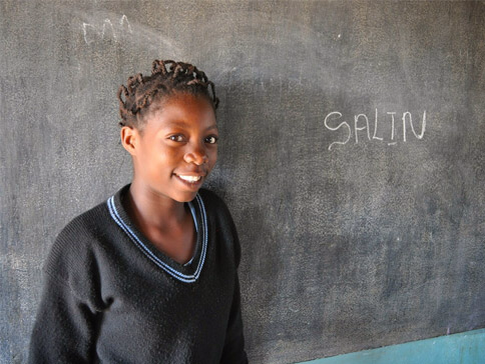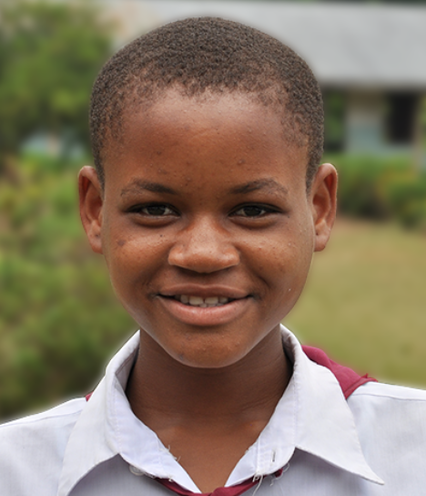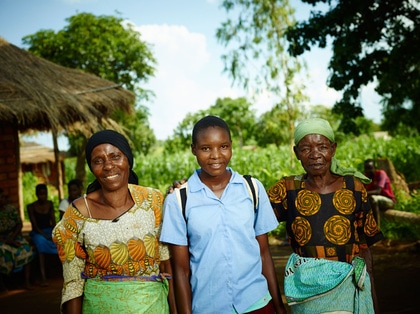What's Camfed? |
|
I don't know about other countries, but Camfed is next to unknown in Australia. We hunted hard for a suitable charity that matched this site's Mma Ramotswe theme. We then checked them out in relation to a number of matters.
For example, the proportion of income spent on the charity's programs, as opposed to all the administrative costs. Some well known charities spend up to 30-40% on administration. Camfed spends less than 10%. This is genuinely remarkable, considering the charity operates out of England. Not, we hasten to write, that the English are more prone to ripping off those who donate to the charity, but that costs are high in any major industrialised country. Another matter of concern was, of course, the types of program undertaken by the charity, and the ways they implement them. It is, sadly, not at all unknown to us via various means for non-government organisations, principally charities, to undertake a number of practices about which the NGO's possibly not totally open. For example, some charities collect money for a specific charitable purpose that is a front for them proselytising their religion. Others go into action in a superior and patronising manner, giving charity that's often misdirected, not what is most needed, or is completely inappropriate for the people concerned. The activities of these mobs are often all about a form of advertising, and when a particular cause falls off the front pages of the "West's" papers, they drop whatever they're doing and the people they're ostensibly doing it for, to rush off to the place that's most likely to keep them in the public eye. Even the United Nations is very far from free of these issues. Other extremely famous charities and the names behind them put conditions on their charity. If whoever is responsible doesn't agree, they take their charity elsewhere. While some conditions may well be acceptable, such as spending money on educating people to wash their hands after going to the toilet, others are far from acceptable. For example, forcing a country's farmers to buy a specific company's seeds at prices the farmers are often unable to afford. Camfed, however, is not part of this codswallop. It provides advice, consults with the local communities, and involves the locals in management and decision-making processes as an essential part of the project. And Camfed doesn't drop those who benefit from its charity. It provides on-going support and encouragement long after the girls, now women, of course, leave school. What follows is just a taster of Camfed's background. |
Camfed's Governance Model
Linklaters, a major global law firm, has at Camfed's request completed a report on Camfed's governance model. The following is a brief excerpt:
|
Camfed has developed a governance model to deliver girls’ education in impoverished rural communities in sub-Saharan Africa. ... Camfed asked us to study its governance model, place it under scrutiny and report on it. In our view, Camfed’s governance model works for two principal reasons. First, it requires Camfed to render account to the girls it supports – much as good governance for corporations and financial institutions, and their regulators, requires those entities to account to their shareholders, investors or consumers. Indeed, Camfed maintains that it owes the children on whose behalf it acts a duty of care equivalent to that which lawyers andother professionals owe their clients.
Second, Camfed’s governance model requires Camfed to establish good governance in rural communities through the implementation of various social assistance programs. Camfed’s programs take root in a community, bringing about long term and sustainable change, only when the community comes together, for example, to identify equitably and transparently the children who are to benefit from Camfed’s support. In other words, Camfed’s education and associated social assistance programs succeed because Camfed gives communities the power and responsibility to run the programs. It is this opportunity which enables communities to become capable, over the long term, of better supporting their children and themselves, through the practice of good governance. Given Camfed’s achievements, it is conceivable that Camfed’s governance model – which appears to us to be scalable and replicable in various contexts – could serve as a model for the international development sector whenever the sector is devising programs to diminish poverty and disempowerment around the globe. |
Just a few of the young
women helped by Camfed
|
Salin (Zambia) was orphaned after losing her parents just one year apart. She now lives with her eldest sister in a house shared with her other siblings and cousins. Altogether, there are 11 people living in their modest house.
Salin’s sister struggles to meet the needs of all the younger children by herself. Salin has watched other siblings drop out of school because their tuition could not be paid. Before receiving the news last year that she would receive support from Camfed, Salin thought this might be her fate too. “I’m not sure if I could have remained in school without Camfed. My sister had already quit Grade 12 to go to work in the fields to earn her tuition.” Salin is determined to make the most of the opportunity she’s been given. When she arrives home after school, she quickly finishes her chores. In the evening, she has her only meal of the day – usually just sweet potatoes that her sister has brought from the field. But her favorite meal is chicken and milk. After dinner, she begins her homework. And when the sun goes down, she reads by candlelight. NOTE: Husna, on the right, says she was "released" by her boss. This doesn't mean she was "enslaved" in the way we usually associate with that fearsome word, or formally imprisoned. We're not 100% sure, but this "release"usage raises the probability of "bonded employment", the slavery a person suffers when traditional slavery has been outlawed. If so, it's lucky Husna had a kind boss. But we wonder what might have happened if the boss had refused! |
|
|
Even with school fees paid, courageous girls like Chikondi (on the right, from Malawi) still face obstacles in completing their education. Walking long distances to school endangers their safety and puts them at risk of dropping out. Muddy roads brought on by the rainy season can lead to absenteeism, and ultimately impact academic performance.
Chikondi has also faced insults and doubts from others because of being a teenage mother. “In my community no woman has defied the odds to go back to school after marriage,” she said. “But I can proudly say that my eyes are fixed on my goal and I have no intentions of turning back. I will be the first accountant in my village and am sure a lot of girls will learn from me.” Us & CamfedAlthough Camfed doesn't operate in Botswana, because so many other countries are far more needy, it does its bit for future African Mma Ramotswes and Mma Makutsis.
The latter, especially, achieved great things by battling through the education system. And the reality is, long-term improvement in poverty-stricken countries is very largely dependent on girls' education, more than anything else. Camfed began in 1993. By 2014 (the time of writing) it has:
Camfed's programs focus on sub-Saharan Africa, particularly Zimbabwe, Zambia, Ghana, Tanzania, and Malawi, tackling poverty and inequality by supporting girls to succeed through school, empowering them to step up as change leaders. Investing in girls and women from some of the poorest rural communities in the world, Camfed is tackling major causes of poverty and inequality. Camfed's help supports girls, who generally drop out of school first, and are the first the system fails, facing high risk futures future: early marriage, early pregnancy, and HIV/AIDS. Educated girls are one third less likely to contract HIV/AIDS, likely to earn 25% more income than uneducated women, and have smaller, healthier families. Committees of local people, including parents,teachers, education and other government officials, police, community leaders, and so on carry out all Camfed's African work. Camfed's programs are completely transparent, audited at every level, and answerable primarily to each individual supported girl. If they need new shoes, lose a piece of uniform, require sanitary products, or must purchase books, pens, and the like, the program responds quickly to meet whatever is the need. Where possible, it must get there before the need arises. |
|




